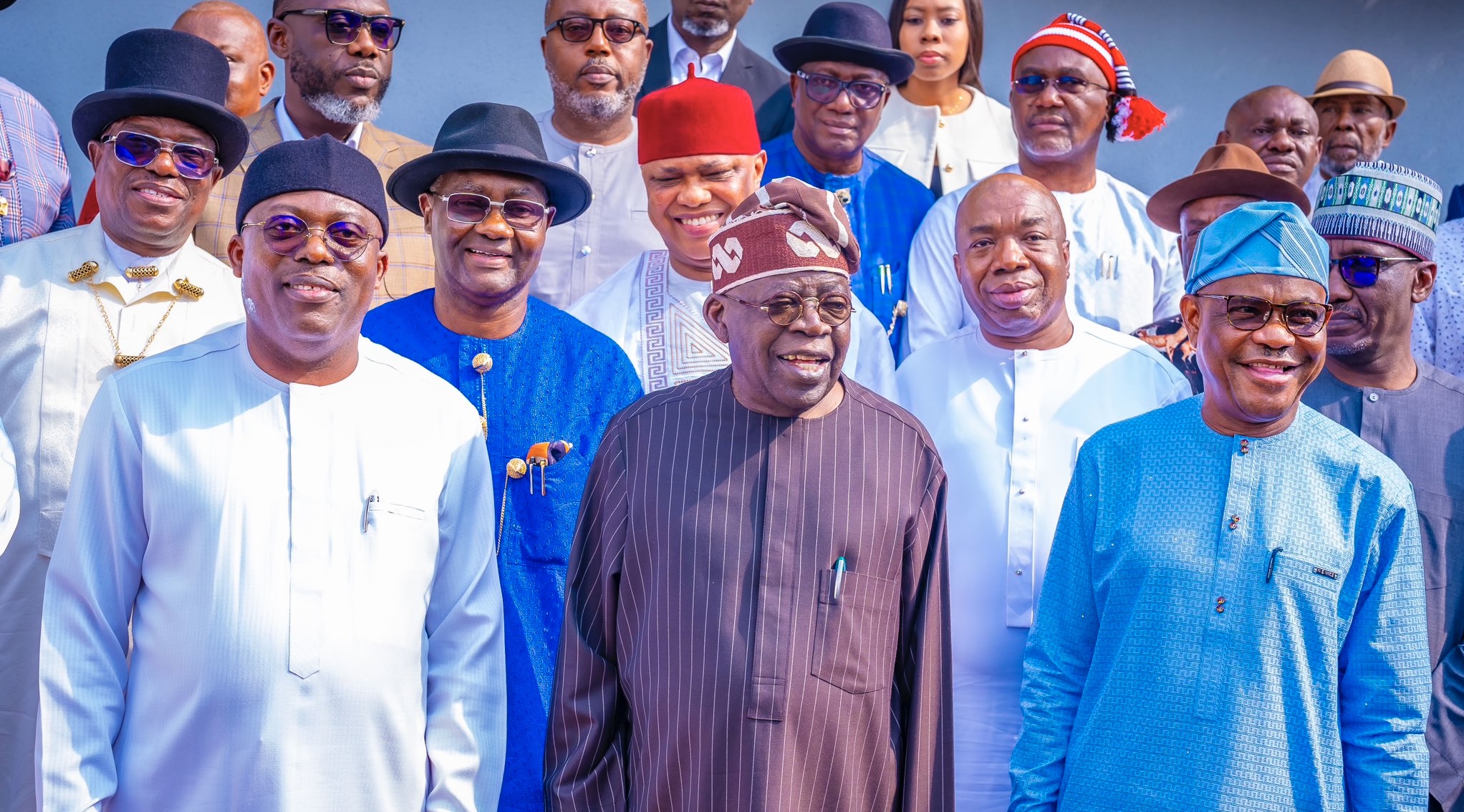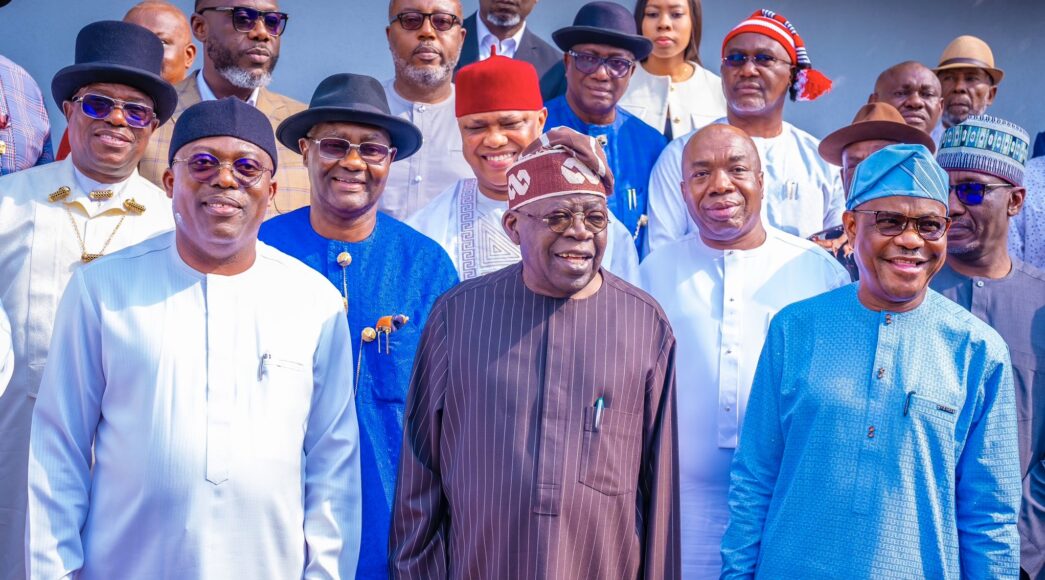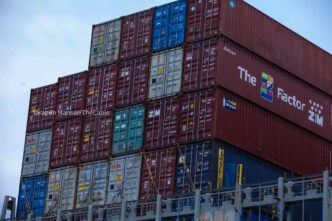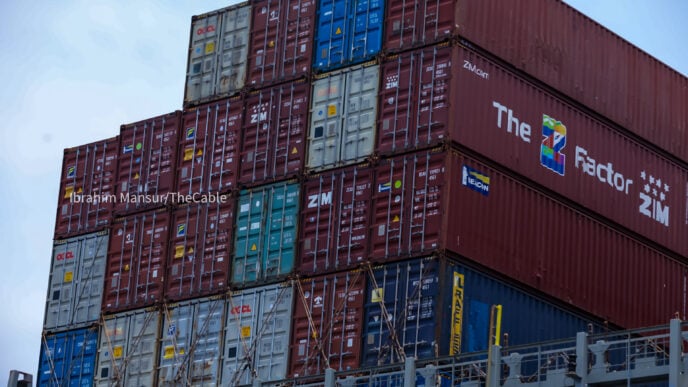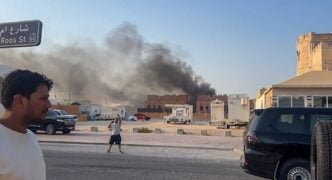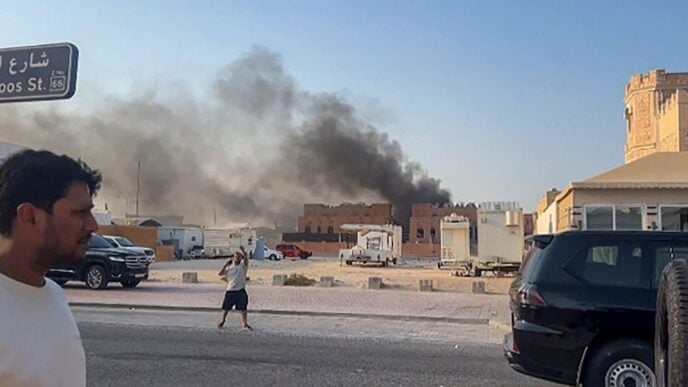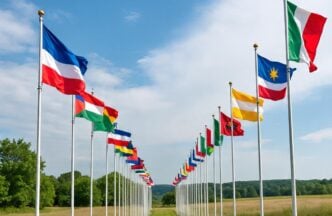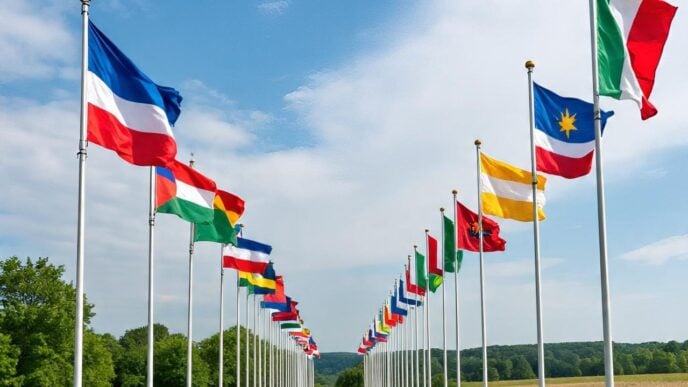L-R: File photo of Siminalayi Fubara, President Bola Tinubu, and Nyesom Wike after a meeting at the Presidential Villa
BY OLUFEMI ADUWO
In constitutions and statutes, the state of emergency provision is enshrined as a safeguard intended to preserve governance during periods of existential threat, whether internal or external. Its purpose is to maintain public order and national security while ensuring the continuity of democratic institutions.The United Kingdom applies this mechanism with a remarkable degree of prudence, underpinned by parliamentary oversight, judicial scrutiny and respect for elected officeholders. Nigeria,in contrast, has repeatedly demonstrated a pattern of constitutional misapplication, transforming emergency measures into instruments of political control, often at the expense of governance, stability and public confidence in constitutional propriety.
The United Kingdom’s Emergency Powers Act 1920, which Nigeria ostensibly emulated but misapplied, specifies the circumstances under which the executive may act decisively, such as war, civil unrest or widespread disorder, always subject to parliamentary ratification, temporal limits and judicial oversight.Emergency measures must satisfy the twin principles of proportionality and necessity. During the Second World War (1939-1945), regulations under the Emergency Powers (Defence) Act 1939 enabled government control over rationing, industry and movement, yet parliament debated and renewed these measures periodically. Elected local officials retained their positions, and judicial review remained available to ensure regulations did not exceed legal authority.
Similarly, during the IRA insurgency in Northern Ireland, powers under the Northern Ireland (Emergency Provisions) Act 1973 enabled internment of suspects, regulation of assemblies and curfews. Yet elected local authorities were never removed, and oversight ensured that powers remained temporary and targeted. Earlier industrial unrest also saw the invocation of the 1920 Act to maintain public order and essential services without precedent for suspension of elected officials. In each instance, emergency measures were functional, legally constrained and designed to protect society and not provided a stage for political opportunism.
Advertisement
Nigeria’s constitutional provisions for a state of emergency, enshrined in Section 305 of the 1999 Constitution, were modelled on the British framework. Yet the Nigerian variant has been applied with an almost systemic disregard for legal nuance. Presidents have routinely suspended governors and state legislators, frequently installing sole administrators despite the glaring absence of constitutional authority. Emergency measures have thus been converted into instruments for executive centralisation and demonstrations of presidential supremacy.
In 1962, Prime Minister Tafawa Balewa, as head of government, invoked emergency powers to remove the Premier of the Western Region. The objective was transparent, and it was to capture the Western Region by the ruling political party. Unfortunately, the outcome, however, was spectacularly ironic, a political debacle precipitating widespread unrest, Operation Wetie (1964), the 1966 military coup, subsequent counter-coup and ultimately the civil war. Balewa’s manoeuvre exposed the perils of executive overreach, that is, supremacy assumed without legal foundation.
Presidents Obasanjo and Tinubu have closely followed Balewa’s example, invoking emergency powers to suspend elected governors and lawmakers and to appoint sole administrators, fully aware of the constitutional vacuum they were exploiting. By contrast, President Goodluck Jonathan’s interventions in Borno, Yobe and Adamawa states adhered more faithfully to constitutional norms. Confronted with Boko Haram’s insurgency, Jonathan declared an emergency, deployed federal forces to restore order and coordinated security operations, but crucially allowed governors and assemblies to remain in place, exercising their mandates.
Advertisement
His approach demonstrated that grave crises could be addressed without dismantling democratic structures. Interestingly, Obasanjo’s declarations affected states governed by his own party, the PDP, where political calculation was muted. By contrast, both Balewa and Tinubu have been explicit in pursuing political advantage, using emergency powers to capture opposition strongholds. The sole administrator installed under emergency cover organised local government elections that the APC won, despite the same councils returning victories for the governor’s preferred party only months earlier. Jonathan, in sharp contrast, was cautious, mindful that some of the affected states were controlled by the opposition and careful to avoid any appearance of partisan conquest, duly followed the constitutional provision.
The misuse of emergency powers in Nigeria finds an uncanny parallel in India. On June 25, 1975, Prime Minister Indira Gandhi proclaimed a national emergency under Article 352 of the Constitution, citing “internal disturbance.” In reality, it was a desperate attempt to cling to power after the Allahabad High Court invalidated her 1971 election for malpractice. Rather than submit to judicial authority, she weaponised the constitution. Civil liberties were suspended, opposition leaders jailed without trial under the Maintenance of Internal Security Act (MISA) and newspapers muzzled under strict censorship. The supreme court itself, in ADM Jabalpur v. Shivkant Shukla (1976), infamously held that citizens could not petition against unlawful detention.
Meanwhile, her son Sanjay Gandhi spearheaded coercive policies, from forced sterilisation campaigns to slum demolitions, deepening public resentment. For 19 months, India’s democracy was reduced to personal rule by decree. Yet, when Gandhi lifted the emergency in March 1977, confident her grip was secure, she miscalculated. The people answered with a resounding rejection. The opposition Janata Party swept the polls and Gandhi herself lost her parliamentary seat in Rae Bareli. The 1977 election was not merely a defeat; it was a referendum on authoritarianism. Gandhi’s abuse of emergency powers, intended to consolidate her rule, instead shattered her legitimacy, fractured her party and permanently stained her legacy.
It is important to note, however, that Gandhi did not act outside the constitution. At the time, Article 352 permitted an emergency to be declared on the vague ground of “internal disturbance.” Gandhi exploited this constitutional opening, as is being done in Nigeria… both by the past and present governments. The tragedy was not merely her opportunism, but the weakness of the law itself. India’s parliament later corrected this flaw through the 44th Constitutional Amendment Act of 1978, which replaced “internal disturbance” with the stricter ground of “armed rebellion,” required periodic parliamentary approval by a special majority and prohibited suspension of core rights such as life and liberty (Articles 20 and 21). This reform closed the loophole Gandhi had abused, ensuring such an authoritarian episode could never recur under the same guise.
Advertisement
By contrast, Nigeria has refused to follow this path of institutional correction. Section 305 of the 1999 Constitution remains unamended, retaining vague phrasing and weak safeguards, thereby preserving the very loophole that successive presidents and incumbents have misused to justify the unlawful suspension of elected governors. Where India learned from its constitutional crisis and reformed the law to protect democracy, Nigeria has entrenched the problem, allowing executive adventurism to masquerade as constitutional order. The Indian lesson could not be clearer; coercion does not guarantee electoral victory. Indeed, it often guarantees precisely the opposite. Attempts to bend institutions, muzzle opposition or capture states under the guise of emergency powers may secure temporary dominance, but history demonstrates they ultimately backfire at the ballot box.
Advanced democracies, including the United Kingdom, France, Germany, Canada and Australia, offer instructive counterexamples. Emergency powers are exercised lawfully, proportionately and effectively, but never used to suspend elected officeholders. France, during the 1958 Algerian crisis under Charles de Gaulle and Germany, invoking the Notstandsverfassung provisions during economic or domestic threats, demonstrated firmness within constitutional limits. Neither tampered with democratic mandates. For Nigeria, the imperative is clear: respect constitutional prescriptions, enforce proportionality and ensure active oversight by the judiciary and legislature. Only then can emergency powers serve their intended purpose, protecting the state, rather than providing cover for executive overreach. Never again must such constitutional impropriety be permitted by any president.
Olufemi Aduwo, permanent representative, Centre for Convention on Democratic Integrity Ltd/Gte (CCDI) to the United Nations, can be contacted via [email protected]
Advertisement
Views expressed by contributors are strictly personal and not of TheCable.
